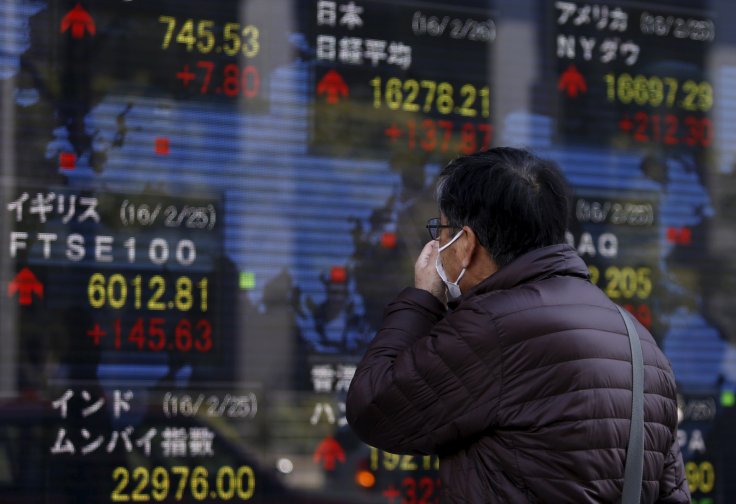
Asian shares struggled to make any headway on Friday as weak U.S. manufacturing activity and uncertainty over how much further the Federal Reserve would cut rates added to the general air of caution in markets buffeted by global growth fears.
With political tumult in Hong Kong, Italy and Britain adding to the tense backdrop, investors were keenly waiting on a speech by Fed Chairman Jerome Powell later in the day at a gathering of central bankers in Jackson Hole.
MSCI's broadest index of Asia-Pacific shares outside Japan edged 0.1% lower, though it was up 0.6% for the week and on track to break a four-week losing streak.
Japan's benchmark Nikkei added 0.2% and Australian stocks eased 0.1%, while South Korean shares shed 0.3% after Seoul said it will scrap an intelligence sharing agreement with Japan.
"It's going to be another wait-and-see day for traders ahead of Powell's Jackson Hole speech. Investors are hoping for some soothing words from him," said Hirokazu Kabeya, chief global strategist at Daiwa Securities.
Wall Street stocks were mixed on Thursday, with the S&P 500 closing little changed, while the Dow was up 0.2% and the Nasdaq falling 0.4%.
In the U.S. bond market, the closely watched two-year, 10-year Treasury yield curve briefly moved back into inversion overnight, a shift that also occurred last week and sent financial markets into a tailspin amid worries of a sharp global downturn. An inversions in the U.S. yield curve has presaged several past U.S. recessions, raising fears the decade-long expansion in the world's biggest economy might be nearing its end.
Overnight, there were more signs of easing momentum as a survey showed U.S. manufacturing activity contracted for the first time since September 2009, though better jobless claims data indicated a resilient labor market.
All of that has made Powell's speech in Jackson Hole pivotal for markets as they look for any clues on future policy easing, after the Fed last month cut rates for the first time since the financial crisis. Any indications of hawkishness in the Fed chief's comments might hurt riskier assets, though the dollar stands to benefit.
The greenback slipped on Thursday, but moved within narrow ranges.
In early Asian trading, the dollar was up 0.1% against a basket of major currencies to 98.249.
The euro also was little changed against U.S. currency at $1.1078. A survey showing a surprise uptick in euro zone business growth for August was offset somewhat by trade war fears knocking future expectations to their weakest in over six years.
The pound jumped to a three-week high of $1.2273 overnight after traders interpreted comments from German Chancellor Angela Merkel to mean that a solution to the Irish border problem could be found before Britain leaves the European Union on Oct. 31.
Merkel on Wednesday challenged Britain to come up with alternatives to the Irish border backstop within 30 days, but French President Emmanuel Macron cautioned there would be no renegotiation of the Brexit deal. Sterling last quoted at $1.2244, almost flat on the day.
China's yuan, which slid to fresh 11-1/2-year lows on Thursday despite support from major state-owned banks in both the spot and forwards markets, maintained its weak tone against the dollar amid worries about the deepening Sino-U.S. trade war.
Onshore spot yuan ended the domestic session down 0.3% at 7.0875 per dollar, its weakest such close since March 14, 2008.
In early trade, the offshore yuan stood at 7.0924 to the dollar, little changed on the day.
Oil prices weakened overnight, with both Brent crude and U.S. West Texas Intermediate down 0.6% each, on worries about the global economy.
Brent crude was last up 0.2% at $60.02 per barrel and WTI crude added 0.1% to $55.38.
Gold prices dipped on Thursday but held near the pivotal level of $1,500 per ounce, underpinned by continued demand for the precious metal amid uncertainties around monetary policy, trade and geopolitical tensions. Spot gold was last down 0.2% at $1,496.00 an ounce.








